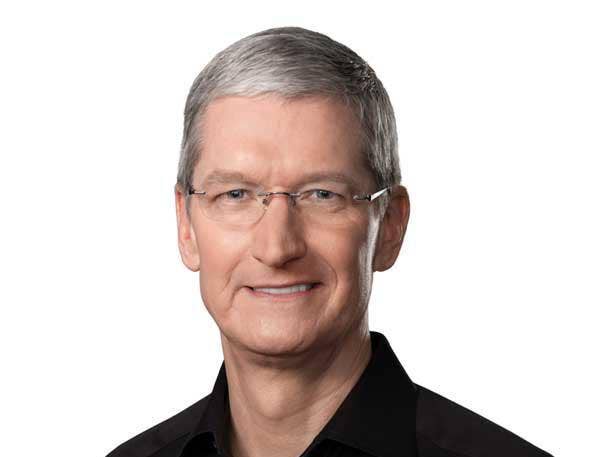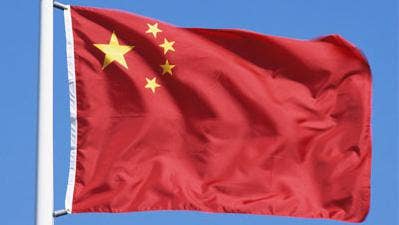5 Takeaways From Apple CEO Tim Cook's Bombshell iPhone Letter

Apple's Bad Start To 2019
This surely isn't how Apple CEO Tim Cook wanted to start off a new year. On Wednesday, Cook released a letter that he wrote to shareholders revealing that "lower than anticipated iPhone revenue" has led the company to slash its guidance for its fiscal first quarter of 2019, which ended Dec. 29. Apple ultimately saw "fewer iPhone upgrades than we had anticipated" during the quarter, he wrote. Apple's stock price was down about 9 percent, to $143.78, shortly after the markets opened on Thursday.
The disclosure follows a number of recent troubling signs about Apple's iPhone business, including flat unit sales in the company's iPhone business in the previous quarter and reduced expectations from leading analysts. Apple has also recently signaled that its iPhone business may be struggling by launching special promotions for buying new iPhones--an extremely rare move by the company.
What follows are five key takeaways from Cook's letter to shareholders.

Cook Admitted The iPhone Slowdown Is Widespread
While Cook emphasized the impact from China in his letter, he acknowledged that there's sluggish iPhone demand in plenty of other places, too. "While Greater China and other emerging markets accounted for the vast majority of the year-over-year iPhone revenue decline, in some developed markets, iPhone upgrades also were not as strong as we thought they would be," Cook wrote.
Along with macroeconomic challenges, he wrote, "we believe there are other factors broadly impacting our iPhone performance." Those include "consumers adapting to a world with fewer carrier subsidies, US dollar strength-related price increases, and some customers taking advantage of significantly reduced pricing for iPhone battery replacements," Cook wrote.

The Guidance Cut Is Severe
In a market environment where even a slight miss on quarterly revenue can lead to a stock price plunge, Apple revised its guidance downward by a massive amount. Just a few months back, Apple had issued guidance suggesting that fiscal Q1 2019 revenue would come in at between $89 billion and $93 billion. Cook's update revealed that guidance is now down to $84 billion in revenue for the quarter—at best, a reduction of 5.6 percent from what Apple was previously projecting. That $84 billion projection also would represent a revenue drop of 4.8 percent from the same quarter a year earlier, when revenue was $88.29 billion.

Cook Didn't Mention High iPhone Prices As A Factor
While Cook blamed the iPhone slowdown on a number of different factors, the increased pricing in the iPhone lineup didn't make his list. But the fact remains that iPhone prices have risen significantly in recent years, and particularly so in the fall 2018 iPhone lineup. For instance, the flagship of the 2018 lineup, the iPhone XS Max, starts at $1,099--compared to the $769 starting price of the 2016 flagship, the iPhone 7 Plus. Even the "budget" iPhone in the new lineup, the iPhone XR, has a starting price of $749—meaning that the iPhone's entry-level pricing is now equal to what its high-end pricing had been just two years ago. As every introductory economics student knows, demand for a product generally drops as the price rises.

Cook Also Didn't Address The Huawei CFO Arrest
Is it just a coincidence that the steep decline in iPhone demand from China followed recent blowback against Apple in the country? Reportedly, some companies in China have been boycotting Apple products as a result of the arrest in Canada of Meng Wanzhou, chief financial officer of Chinese smartphone maker Huawei, at the behest of the U.S. in December. Reports suggest that some Chinese companies have been offering subsidies to employees for buying Huawei phones--and may have even been confiscating iPhones and threatening to fire employees who continued using Apple products. While those could very well be isolated incidents, they do suggest that anti-Apple sentiments may be taking hold more broadly in China amid rising nationalism and the trade war with the U.S. As with iPhone pricing, Cook did not mention the arrest of Huawei's CFO as a factor in the slowing iPhone demand in China.

The Mac And iPad Are Doing Just Fine
Cook said the iPhone "accounts for all of our revenue shortfall," whereas other products in Apple's lineup are seeing strong growth. In October, Apple debuted refreshed models of the iPad Pro, MacBook Air and Mac Mini, which followed updates earlier last year to the 9.7-inch iPad and MacBook Pro. All of those moves appear to be paying off, judging by Cook's comments in his letter to shareholders. Categories outside of iPhone—including services, Mac, iPad and Apple Watch—"combined to grow almost 19 percent year-over-year" during Apple's fiscal Q1, Cook wrote. In fact, services, wearables and Mac saw "all-time record revenue" during the quarter, he said.
"Wearables grew by almost 50 percent year-over-year, as Apple Watch and AirPods were wildly popular among holiday shoppers; launches of MacBook Air and Mac mini powered the Mac to year-over-year revenue growth and the launch of the new iPad Pro drove iPad to year-over-year double-digit revenue growth," Cook wrote.